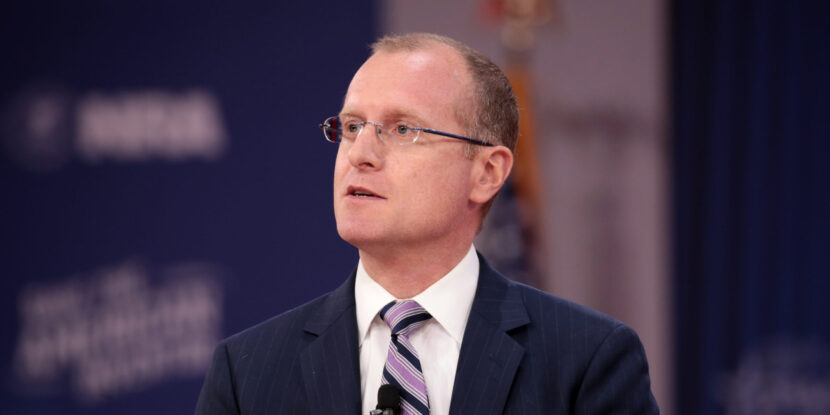
PULSE POINTS:
❓What Happened: A judge in New Mexico dismissed charges against 98 illegal immigrants who crossed into a restricted National Defense Area.
👥 Who’s Involved: Judge Gregory B. Wormuth, 98 illegal immigrants, Defense Secretary Pete Hegseth.
Your free, daily feed from The National Pulse.
📍 Where & When: Restricted land along the U.S.-Mexico border in New Mexico, dismissals began being filed late Wednesday.
💬 Key Quote: “The United States provides no facts from which one could reasonably conclude that the defendant knew he was entering,” said Judge Wormuth.
⚠️ Impact: Dismissal of charges could set a precedent for similar cases; illegal immigrants remain in custody and may still face deportation.
IN FULL:
A federal judge in New Mexico has dismissed charges against 98 illegal immigrants who crossed into a restricted National Defense Area near the U.S.-Mexico border. The area, established under the Trump administration, forms part of the U.S. Army Garrison Fort Huachuca and is marked by “Restricted Area” signs in both English and Spanish.
Judge Gregory B. Wormuth ruled that the illegals could not be prosecuted for entering the restricted zone because they were reportedly unaware it was military property. “The United States provides no facts from which one could reasonably conclude that the defendant knew he was entering,” Wormuth claimed, insisting that requiring intent to enter military land is necessary to avoid “absurd and unfair results.”
The dismissed cases are among approximately 400 misdemeanor charges filed against illegal immigrants who entered the restricted area. Defense Secretary Pete Hegseth had previously praised the establishment of the National Defense Area, emphasizing its role in reducing illegal crossings. “When you cross illegally, you will be prosecuted to the fullest extent of the law,” Hegseth said during a visit to the area earlier this year.
Defense attorneys argued that the border crossers were unaware of the restricted zone’s boundaries, with some arriving in the dark or unable to read warning signs. One attorney described the area as “just a bunch of desert,” asserting that the charges were unexpected.
Despite the dismissals, the illegal immigrants remain in custody and may still face deportation for entering the U.S. unlawfully.
President Donald J. Trump‘s border policies have already massively reduced illegal crossings in the first few months of his term. According to the U.S. Border Patrol, registered encounters with migrants in March dropped 97 percent compared to March 2022. Similar trends have been seen on the northern border with Canada as well.

PULSE POINTS:
❓What Happened: The Federal Communications Commission (FCC) will allow Verizon’s purchase of Frontier, a regional telecom company, to move forward, with the former agreeing to enact a series of reforms in alignment with President Donald J. Trump’s pro-worker, America First agenda.
👥 Who’s Involved: Verizon, Frontier, the FCC, FCC Chairman Brendan Carr, tower climbers, and telecom workers.
Your free, daily feed from The National Pulse.
📍 Where & When: Washington, D.C., on Friday, May 16, 2025.
💬 Key Quote: “The agreement between NATE, Verizon, and the FCC is massive news. As a 36-year tower contractor and employer of over 200 tower technicians, this brings fairness back to our relationship. We can’t thank Chairman Carr enough for looking out for Main Street while still being fair to Wall Street. We hope T-Mobile and AT&T will follow Verizon’s lead,” said Craig Snyder, a tower climber and one of the negotiators for his industry in the Verizon acquisition deal, in comments to The National Pulse.
⚠️ Impact: Verizon’s acquisition approval comes with a commitment to ending its diversity, equity, and inclusion (DEI) policies and programs and agreeing to a new set of pro-worker conditions with the tower climber and telecom worker industries.
IN FULL:
The Federal Communications Commission (FCC) is allowing telecom giant Verizon to acquire Frontier, a regional communications company, with the aim of expanding its fiber Internet service. Notably, Verizon’s acquisition was contingent on a series of policy and labor practice changes, in alignment with President Donald J. Trump’s pro-worker America First agenda, imposed by the FCC through its regulatory authority.
“By approving this deal, the FCC ensures that Americans will benefit from a series of good and common-sense wins. The transaction will unleash billions of dollars in new infrastructure builds in communities across the country—including rural America,” FCC Chairman Brendan Carr said in a statement announcing the acquisition approval. “This investment will accelerate the transition away from old, copper line networks to modern, high-speed ones. And it delivers for America’s tower and telecom crews who do the hard, often gritty work needed to build high-speed networks.”
One of the biggest concessions being made by Verizon is the company’s decision to end its diversity, equity, and inclusion (DEI) policies and programs. In a letter to Chairman Carr on May 15, the telecom company acknowledged that it “recognizes some DEI policies and practices could be associated with discrimination.” Verizon goes on to announce that it “is changing its HR structure and will no longer have a team or any individual roles focused on DEI.” The move comes after Chairman Carr informed a number of telecom and Internet technology companies that the FCC would halt license approvals and authorizations for those that maintain discriminatory DEI programs.
The FCC also highlights that the deal represents a win for American workers. Verizon, as part of the approval, is committing to rework its agreements with NATE, the Communications Infrastructure Contractors Association, and remove the costly burdens its policies have placed on tower climbers. These new provisions include taking into account considerations in pricing when it comes to site conditions, the adoption of regional pricing for tower climbers and telecom workers’ labor, 30-day payment terms with fair indemnity clauses, and limits on Verizon’s use of 1099 outside contractors, which have been used to undercut worker wages.
Craig Snyder, a tower climber and negotiator for his industry in the Verizon acquisition deal, told The National Pulse: “The agreement between NATE, Verizon, and the FCC is massive news. As a 36-year tower contractor and employer of over 200 tower technicians, this brings fairness back to our relationship. We can’t thank Chairman Carr enough for looking out for Main Street while still being fair to Wall Street. We hope T-Mobile and AT&T will follow Verizon’s lead.”
show less

 1 month ago
2
1 month ago
2








 English (US) ·
English (US) ·